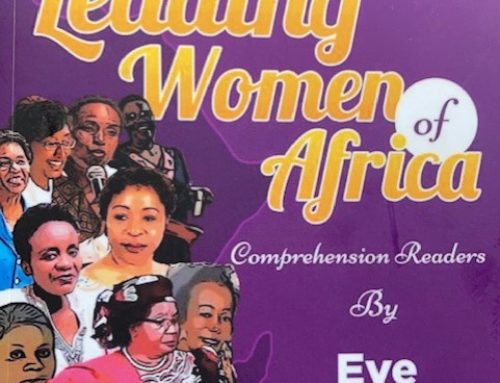[a guest post by Sindile Mlingo Vabaza]
I will not pretend to have grasped the inherent difficulties in running a country but I think I can confidently assert that if we want not only a free and fair and just South Africa, but one that has clearly engaged it’s past and moved into a post-colonial and post apartheid state, we are going to have to be both honest and have intellectual integrity no matter what viewpoint we espouse.
This is important for a number of reasons.
1. South Africa is a secular and constitutional democracy and implied in that is the freedom for people to bring multiple perspectives to the table as to what will constitute a ‘thriving, just, economically sound, racially and socially cohesive country that is built on being non-racial and non-sexist’.
That is the baseline agreement.
How we get there is up for debate. Vigorous debate.
In entering these debates there must be some sort of binding social agreement which holds us to intellectual integrity(meaning we do our homework and we are able to properly convey our ideas in the marketplace of ideas) and also that we rightly justify the opinions we hold.
Although, a difficult balance we also need to be open to changing our ideas while remaining in a position of conviction of the ideas we already hold.
2. The powerful social influences of religion and culture/tradition can easily overpower reason and due diligence.
Religious people need to be careful when quoting verses from their holy books to justify their opinions. Firstly holy books were written within vastly different contexts to our own and at a time when scientific knowledge was quite non-existent and to apply glibly these verses is to do both religious and non-religious communities a massive disservice.
For example, the difference between the secular and religious view of sexuality can be summed up in that sexuality for secularists is a health issue(physical, psychological, emotional etc), whereas it is a fundamentally moral one for religious people.
The problem with making ‘societal’ sexuality a fundamentally moral one(as religious people are given to doing) is that people and indeed cultures and worldviews can differ vastly but people with those differences can be equally sexually healthy or unhealthy.
This is borne out by many studies including those done by the Barna research Group(a Christian one) which seems to show that young Christians in America are just as sexually active as their non-Christian counterparts, but less likely to use contraceptives(they don’t want to make it seem like they planned it) and more likely to engage in oral and anal sex(often without the requisite knowledge to do it safetly). Other studies seem to bear this out as well and in fact have discredited the whole ‘Abstinence only’ movement.
Now my point is this; I understand for example that waiting until marriage is important for a lot of religious people and an important tenet of faith(the mystery of marriage is that of Christ and his church in the case of Christianity), but a call for real honesty needs to be made to religious leaders and communities when addressing this issue (and many others of course).
The often not-always-well-thought ideas on which teaching in religious communities rests on, particularly pertaining to general sexual behaviour is at times troubling.
The idea that people who have sex before marriage are ‘damaged goods’ is a pervasive and in my view a nefarious one. While holding abstinence from sex until marriage as a key value to strive for, issuing judgement and condemnation when it is not maintained seems to strongly contradict the concepts of love and grace that are at the heart of Christianity.
This does not call into question the wisdom of Christian teaching but it does call into question how it is TAUGHT and APPLIED and in WHAT CONTEXT.
In South Africa in particular, this lack of real thought by religious people combined with cultural/traditional mores and a fundamentally more conservative outlook mean that when young women who are sexually active want to seek contraceptives(especially in rural and poor township areas) they are often shamed(from a moral point of view) and because of that many do not always seek preventative health measures which further compounds our HIV and STI woes and also in a lot of cases simply helps the CONFIRMATION BIAS of religious leaders and communities.
Also because we live in a deeply patriarchal and misogynistic society the shame and guilt(again very moral terms) is shifted to women mostly and having personally noted this, I as a man, am shocked at how deeply the lived experience of women, especially young women in this country is marked by pervasive feelings of guilt and shame and how popular ‘slut shaming’ is amongst both men and women.
Is it any wonder women are so reluctant to report incidences of sexual violence and what about all the young women in universities and colleges around the country, women who are this nation’s next leaders, who have to live in shame and pain because they are afraid their sexual histories and habits will be open to public scrutiny if they come forward about being coerced or drugged(then raped).
There is a price to pay for a lack of intellectual integrity and due diligence in everything but more insidiously the price is higher in this regard.
The dream that undergirds the New South Africa is one of both Non-racialism and Non-sexism. We absolutely hammer non-racialism home but hardly seem to be concerned about the non-sexism part.
We need to be.
In my own honest opinion I don’t think there is anything fundamentally wrong with religious teaching on sexuality because there are young people who want to remain virgins(and not all of them are religious) and faith can often give them the tools to navigate the world and preserve their convictions.
The sexual health of young people especially young women cannot become an ideological war between those who are conservatively minded and those who are liberally minded.
Young people deserve better than that and quite frankly they need mature, live and healthy examples of the Christian sexual ethic(that to me seems to be the best tool to persuade others of the religious sexual ethic).
[For some thoughts Sindile has on First Steps towards a genuine New South Africa, click here]
[For some challenging thoughts by Sindile on Employment Equity, click here]







Not sure whether you are a Christian or not Sindile, but if so this is one of the most balanced viewpoints I’ve seen about sexuality from that direction. If you’re not a Christian I think it’s a well judged, but non-judgemental exhortation to that community. Either way, as a non-christian I agree with what you are saying, and much of it applies pretty much universally I think.